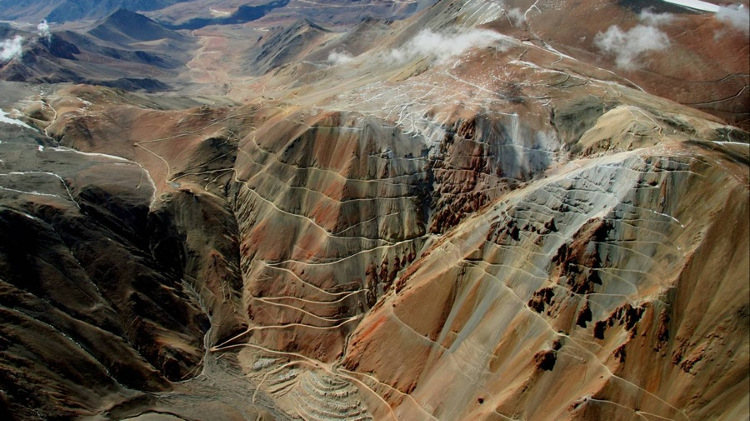Taseko's Gibraltar copper-molybdenum mine in south-central B.C. Spokesperson Brian Battison said none of the company's operations have been affected by wildfires this year. Courtesy of Taseko Mines
As British Columbia fire crews continue to fight back against the wildfires that have engulfed the province, mining companies working in the province have been preparing for the possibility their operations may also be affected.
Teck Resources halted its lead smelting production in Trail after smoke from a fire forced the company to temporarily suspend its Linde plant due to the poor air quality. The Linde plant provides oxygen to Teck’s Trail operations. Zinc smelting production, however, has been unaffected by the smoke.
While the wildfires this year have been intense, they are not uncommon in British Columbia, and companies have been using previous experience to prepare them for the future.
Taseko Mines spokesperson Brian Battison said that while none of the company’s operations have been affected by this year’s fires, it has procedures in place if they get too close. During a similar string of forest fires last summer, highway access to Taseko’s Gibraltar mine in south-central B.C. was blocked, forcing it to briefly shut down operations.
Related: Oil sands operations jumped into action when wildfires hit Fort McMurray
New Gold has taken a more proactive approach to protecting its New Afton gold mine, west of Kamloops. The company sent out one of its personal fire engines as well as four firefighters to assist crews in the Burns Lake fire zone in central B.C.
“We’re doing what we can to help,” said Scott Davidson, the environment, social responsibility and tailings manager at New Afton. “We see an opportunity where we can help efforts, and we gladly join in.”
New Gold has also opened a base camp at its Blackwater exploration project south of Vanderhoof for the province’s fire crews to use.
“We opened up the camp and basically made the camp available because it’s a lot closer to where the fires are, so that the people that are actually working on attacking these fires are able to be closer to where they’re needed,” Davidson said.
According to the BC Wildfire Service, over 1,900 fires have started since April, with over 400 still classified as active. The service estimates over 629,000 hectares of land have been burned so far. In comparison, last year was classified as the worst wildfire season in B.C.’s history, with over 1,300 fires and more than 1.2 million hectares burned between April and November.



